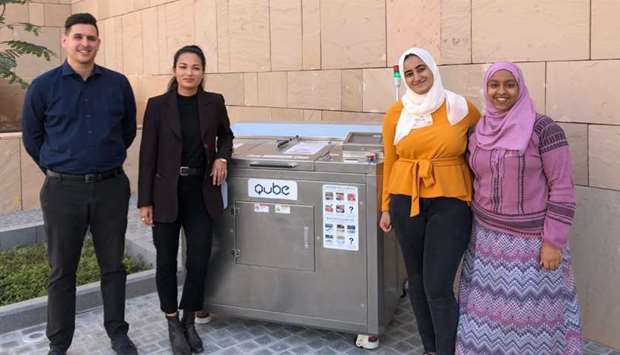A graduate of the Class of 2020 from Georgetown University in Qatar (GU-Q) has highlighted the importance of empathy in understanding environmental, economic and political issues around the world.
Salma Hassan travelled to Spain last year on a university trip to study the armed political struggle of ethnic Basques in northern Spain, and the experience made her more empathetic towards global issues, starting from macro level down to the individual lives they impact.
Hassan is one of the most actively involved members of GU-Q’s Class of 2020. Throughout her student life, she maximised the number of opportunities, excelling not only in academics and graduating with Latin honours, but also in extracurricular activities, ranging from the Model United Nations and playing basketball to community service and being a research assistant.
“We always have this preconceived notion that ‘I understand what’s going on’, but going to the Basque country and meeting people there directly gave me a perspective that I don’t think any book, article, or video would’ve given me,” said Hassan, who graduated with a major in international economics from the Qatar Foundation partner university .
“It made me have more empathy for what I am studying, and made me realise that I am not just studying dots on a map or numbers in a dataset, but that I am studying real people and that this affects real people. Since then, I have taken everything I learned with a grain of salt unless I really understand a complex issue through someone I know.”
Practising empathy, was a value that guided virtually all the activities she pursued as a student, particularly her most rewarding experience of founding the GU-Q Sustainability Club. As its president, Hassan advocated for empathy towards the environment via sustainable activities on campus.
“Being empathetic might be harder in the case of climate change, because you are trying to take care of something that you don’t physically interact with on a daily basis in the same way that you interact with a human,” said Hassan. “But empathy is very much related to sustainability, and a major part of it is being empathetic towards the future generations of this planet.”
One of the main milestones of the club was to collaborate with a Qatar-based environmental technologies company to introduce the concept of “up-cycling” on campus, by bringing in a mobile on-site machine that turns scraped leftovers of the cafeteria meals into rich compost.
In 2017, when the blockade against Qatar was announced, Hassan, from Egypt, was one of the several QF students from the blockading countries who feared the future of their education made uncertain by a political conflict.
“My father lost his job, and I was worried about whether I could stay in Qatar or not, so it wasn’t an ideal situation,” said Hassan. Eventually, Hassan’s family was able to work with the authorities in Qatar to remain in the country, and she has been able to continue her education without any disruption.
Among other challenges faced by Hassan and the batch of students that she is part of was working around the travel ban to US imposed on certain nationalities, just before the group prepared to study abroad at Georgetown’s main campus in Washington D.C., and graduating amidst the economic downturn caused by the Covid-19 pandemic.
Nevertheless, Hassan believes that experiencing such challenges, particularly a global pandemic, has made herself and her fellow graduates more resilient and prepared for the trials of the real world.

